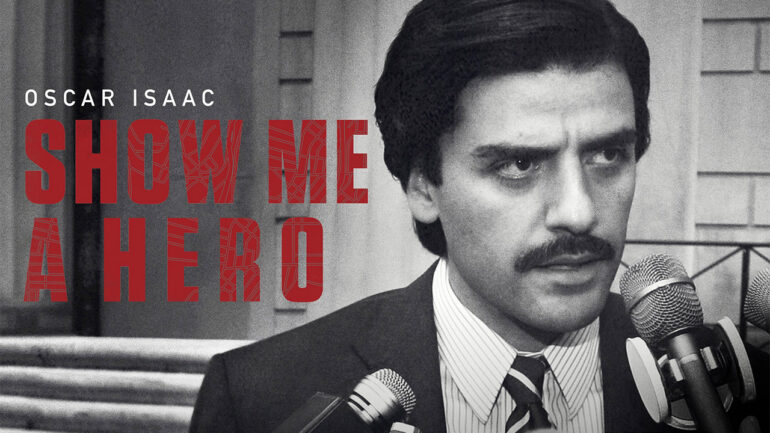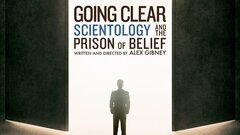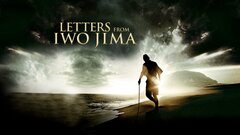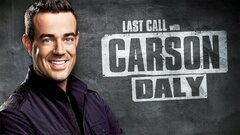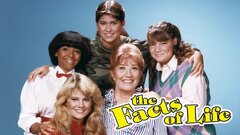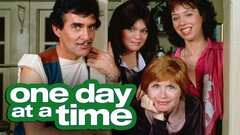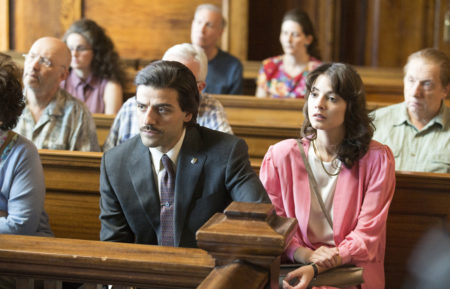Despite getting his start as a sitcom writer, writer-director Paul Haggis earned a hard-fought-for career in Hollywood which culminated in winning Academy Awards for his biting racial drama, "Crash" (2005). Prior to his Oscar triumph, Haggis spent years writing for popular sitcoms like "Diff'rent Strokes" (NBC/ABC, 1978-1986), "One Day at a Time" (CBS, 1975-1984), and "The Facts of Life" (NBC, 1979-1988).
Eventually, he transitioned from sitcoms to one-hour dramas, adding "thirtysomething" (ABC, 1987-1991) and "L.A. Law" (NBC, 1986-1994) to his growing television resume. Haggis received an Oscar nomination for his brutal, honest drama, "Million Dollar Baby" (2004), starring Clint Eastwood and Hilary Swank. He continued working with director Eastwood on "Flags of Our Fathers" (2006) and its companion piece "Letters from Iwo Jima" (2006), the latter earning him another Academy Award nod.
Born on March 10, 1953 in London, Ontario, Canada, Haggis was raised by his father, Ted, and his mother, Mary, both of whom owned the old Gallery Theatre in his hometown. Growing up the son of theater owners no doubt contributed to his early interest in writing for the stage. He also had an affinity for film, having been reared on a steady diet of Alfred Hitchcock and Jean-Luc Godard - early inspirations that fueled his fascination with art and storytelling.
After studying art at H.B. Beal secondary school, and under the influence of Michelangelo Antonioni's "Blow-Up" (1966), he moved to England to become a fashion photographer, but went hopelessly broke, forcing a return to Canada to study cinematography at Fanshawe College. While in school, he spent his summers working for his father, who also owned a construction company, a job that left his father questioning his son's skills in that particular arena. Meanwhile, Haggis wrote plays, some of which were performed with his sister, Kathy Slevin, at The Gallery Theatre. Haggis later described the plays as "awful" - one of which, the musical comedy "Oh! Canada" - proved popular enough that many felt he should shoot for the stars in Hollywood.
With encouragement and financial support from his father, Haggis heeded that advice and moved to Los Angeles to start a writing career. Times were tough, however, as he worked odd jobs as a furniture mover and an in-store photographer for a department store while honing his craft at night. He was eventually tapped by Jack Humphrey at CBC to write the pilot for "Hangin' In," a sitcom about a social worker who runs an inner-city youth counseling center. Then while taking a writing course, Haggis ran into a writer from "Diff'rent Strokes" (NBC/ABC, 1978-1986), who had just broken up with his writing partner. With a script for the show due the next day, Haggis offered his services gratis. The sitcom writer wanted Haggis to earn something for his work, so in exchange, he received an upholstered chair bought at the Salvation Army. Haggis was hired onto the show, while the chair remained in his office as a reminder of what became a major turning point in his career.
Haggis soon became a story editor on "Diff'rent Strokes," then moved on to write another Norman Lear-produced sitcom, "One Day at a Time" (CBS, 1975-1984). Once that show was canceled, he took a step or two back, becoming a writer and executive producer on the schoolgirl sitcom, "The Facts of Life" (NBC, 1979-1988), a series he later claimed to have hated. Haggis was fired a year after becoming executive producer for suggesting in frustration that they try to make the show funny - a move he welcomed with open arms. The knowledge he gained of producing, editing, and working with writers and putting together the elements of a show, however, proved fruitful later in his career.
Meanwhile, he penned episodes of "Who's the Boss?" (ABC, 1984-1992) and graduated to one-hour drama when he wrote for "L.A. Law" (NBC, 1986-1994). Haggis was approached by producers Ed Zwick and Mark Herskovitz and asked to work as a writer and supervising producer on the quirky drama, "thirtysomething" (ABC, 1987-1991). Despite critics lambasting the show as self-indulgent and the creative forces behind the scenes fretting about the show's chances of survival, "thirtysomething" went on to earn several awards after its first season, including an Emmy and Humantis Prize for Haggis.
The success of "thirtysomething" allowed Haggis to develop shows closer to his darker and more complex artistic sensibilities. He created the political satire, "City" (CBS, 1989-1990), starring Valerie Harper as a city manager at city hall who juggles corruption at work and life at home as a single mom. Though critically acclaimed, the show proved to be too dark for audiences and CBS canceled the series after 13 episodes. He moved on to create another critically acclaimed, but ill-fated series, "Due South" (1994-96), about a Royal Canadian Mountie (Paul Gross) who goes to Chicago to find his father's murderer and ultimately sticks around to help the Chicago police solve crimes with a grizzled local detective (David Marciano). The series attracted a small and rabid following, but ratings once again proved to be a death knell. It was revived on both TNT and CTV in Canada after its initial season on CBS, but again failed to draw a wider audience.
Though credited as a co-creator of the hit Saturday night action-drama, "Walker, Texas Ranger" (CBS, 1992-2001), Haggis left the show early to move onto what he thought would be greener pastures. Perhaps wanting complete control over a project led him to create "EZ Streets" (CBS, 1996-97), a compelling and hard-edged drama about a cop (Ken Olin) and an ex-con (Joe Pantoliano) living parallel lives on opposite sides of the law in a decaying city. Haggis maintained artistic control over the material - a position he had previously never held - but his vision of a show with amoral characters, stark cinematography and Celtic music was doomed to failure. The series was canceled after a 10-episode run and ranked 111th out of 125 in the ratings. Haggis attempted another series, "Family Law" (CBS, 1999-2002), a one-hour legal drama about a Southern Californian firm handling divorce and child custody cases. The show managed to survive its first season, but once again poor ratings ushered in an early exit.
In 1996, Haggis made his feature debut as both a writer and director with the little-seen period drama, "Red Hot," which depicted four Russian teenagers who in 1959 try to form the Soviet Union's first rock-n-roll band. He waited eight years to write another film, but his patience paid off when he adapted F.X. Toole's collection of prize fighter stories, Rope Burns, into the Oscar-winning "Million Dollar Baby" (2004), which told the heart-wrenching tale of an aging trainer (Clint Eastwood) getting one last shot at glory by managing an up-and-coming female boxer (Hilary Swank). Though Haggis was passed over for a Best Adapted Screenplay Oscar after receiving a nomination, he managed to reinvigorate himself in a new medium. His solid working relationship with director Clint Eastwood led the screen legend to hire him to develop the World War II drama, "Flags of Our Fathers" (2006), a bittersweet drama about the men who raised the flag at Iwo Jima and the subsequent effect the photograph had upon their lives.
Meanwhile, Haggis directed his second feature, "Crash" (2005), a challenging and racially-charged drama about the interlocking lives of several Los Angelinos. Originally slated to be a show on the FX Network to star Don Cheadle, Haggis instead adapted the story for the big screen, crafting a finely-tuned - if sometimes overindulgent - look at the effects of race on the different stratums of society. Decorated by numerous awards, "Crash" took home several top prizes, including Best Picture at the Academy Awards. Haggis' win was not without criticism, with many crying foul and accusing the Academy of homophobia after the film many expected to win - Ang Lee's "Brokeback Mountain" - lost out to "Crash."
While working on "Flags of Our Fathers" (2006), Eastwood tapped Haggis to work on a companion film, "Letters from Iwo Jima" (2006) that depicted the vicious battle from the Japanese perspective. Haggis, however, was bogged down with work and suggested hiring another writer, first-timer Iris Yamashita, who was represented by the same agency. Haggis developed the story with Yamashita about a brilliant, but doubting general (Ken Watanabe) who leads the defense of the small island with few men and little resources, resulting in one of the most brutal fights in the Pacific Theater. Haggis and Yamashita both received nominations for Best Original Screenplay, though it was his writing partner who received the majority of the press since it was her first produced work.
Meanwhile, Haggis returned to the small screen, creating and producing "The Black Donnellys" (NBC, 2006), a crime drama about four brothers (Billy Lush, Jonathan Tucker, Tom Guiry and Michael Stahl-David) from an Irish family coming-of-age while engaged in organized crime in New York's notorious Hell's Kitchen. After receiving mixed reviews, the show was unceremoniously canceled after a scant six episodes.
Returning to the feature world where he had enjoyed more success, Haggis wrote and directed "In the Valley of Elah" (2007). Inspired by a Playboy article, the moving crime drama focused on a former military policeman and distraught father (Tommy Lee Jones) who teams up with a detective (Charlize Theron) to find his son, a soldier gone missing after returning from active duty in Iraq. Despite hope that he would earn another Oscar nomination, Haggis was shut out of the competition.
Meanwhile, having already received screen credit for his rewrite of the James Bond reboot "Casino Royale" (2006), Haggis returned to write Daniel Craig's second go at 007, "Quantum of Solace" (2008), one of the weaker installments in the long-running franchise.
As he went into production on his next directing effort, "The Next Three Days," a remake of the French thriller, "Pour Elle" (2008), Haggis created an Internet firestorm when he scathingly renounced the Church of Scientology after 35 years of membership. In a vitriolic letter to church member Tommy Davis, Haggis denounced Scientology for publicly backing Proposition 8, the amendment to the state constitution that banned gay marriage. But Haggis' ire was multi-pronged: he blasted the church for being "morally reprehensible," due to its policy of disconnection, which forced Haggis and his wife, Deborah Rennard, to cut her parents out of their lives once they left Scientology, and the church's intimidation tactics, which included publicly smearing members with intimate details about their lives. The letter Haggis had written for private viewing amongst church members went viral on the Internet and was an immediate cause célèbre, with most people cheering on the director for his brash audacity to stand up to the powerful organization.





